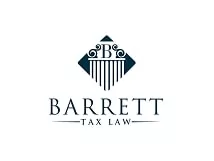The following are considerations on deductions that independent contractors and salaried employees may count against their income due to the current COVID-19 pandemic.
If salaried employees are required by contract (written or implied) to maintain a home office, they fulfill over 50% of employment duties in their home office, and their employer completes a Form T2200, then they may deduct expenses for that home office. Employees may also deduct expenses for supplies used in their employment duties, not reimbursed by their employer.
For independent contractors, expenses can be deducted from your income, if those expenses were incurred for the purpose of earning income from a business or property.
Independent Contractors
Deductions for independent contractors are broader than those for employees. For independent contractors, the legal source of deducting expenses from their business income is ss. 9(1) of the Income Tax Act ("ITA").
Subsection 9(1) defines profit from a business or property as a net concept, meaning that it includes what is deductible from a commercial trading or business practice standpoint.1 Subsection 18(1)(a) on the other hand expressly disallows certain expenses if they were not incurred for the purpose of earning income from a business or property.
Legal rules have not altered expenses available to independent contractors due to COVID-19; however, independent contractors should be aware of how COVID-19 has altered expenses attributed to their income-earning process. For example, if an independent contractor travels longer with a motor vehicle to access income streams as a result of the present pandemic, then they can include those vehicle expenses, including fuel, oil changes, repairs, toll charges, insurance, depreciation (etc.) in their annual tax return.
Salaries Employees
Eligible deductions from employment expenses for employees derive from s. 8 of the ITA. "Write offs" according to that section include eligible motor vehicle expenses, travel expenses, parking, supplies, computers, cell phones and other equipment, special clothing and tools, as well as salaries and office rent. "Office rent" includes workspace in the home, referred to in ss. 8(13) of the ITA. For an expense to be eligible for deduction, it cannot be reimbursed.
In order for an employment expense to be deductible, it must be required by an employment contract. This requirement is found in each provision under s. 8 except for those that deal with expenses outside the scope of employment, such as suing an employer for wages. All employers must fill out a Form T2200 for an employee to deduct expenses.
For home expenses to be deductible, they must comply with ss. 8(1)(i)(ii) and be "required by the contract of employment." They also must fulfill one of two conditions under ss. 8(13)(a). Either the location is:
- where the individual principally performs the duties of the office or employment; or
- used exclusively during the period in respect of which the amount relates for the purpose of earning income from the office or employment and used on a regular and continuous basis for meeting customers or other persons in the ordinary course of performing the duties of the employment.
Due to COVID-19, the first condition is met for many Canadians. The CRA considers an amount in excess of 50% to fulfill the term "principally."2 As such, if an employee is required by contract to incur home office expenses and performs an excess of half of their duties from home, then they can deduct a percentage (measured in terms of square feet, and divided by total square feet of the home) of their home office expenses, such as electricity. For renters, they can deduct a proportion of rent based on home office space, from their employment income. Employees can also deduct expenses for maintaining their home office, which could include cleaning materials or paint.
In order for any employment expense to be deductible, it must be "required" by an employment contract as indicated in a Form T2200 and in the ITA. According to case law in federal courts, including the Tax Court of Canada ("TCC"), strong evidence of an employment "requirement" is as follows. An employment requirement under the ITA may be found if not doing that task would lead to an "unfavorable assessment by an employer."3 Employment requirements "by contract" can be implied as well as written, and whether one exists is a question of fact. Therefore, case law in the TCC4 shows that, even where no "requirement" is laid out in the words of an employment contract, employees can still be required to incur certain expenses and legally deduct those amounts from their employment income.
Footnotes
1 Symes v the Queen, [1993] 4 SCR 695, 1993 CanLII 55 (SCC).
2 Canada Revenue Agency, "Employment Expenses 2019" (21 January 2020).
3 Gilling v Minister of National Revenue, [1990] 1 C.T.C., 1990 CarswellNat 271. 4 Hoedel v R., 1986 CarsewellNat 395, [1986] 2 C.T.C. 419, 72 N.R. 399, 86 D.T.C 6535.; Landry v. R, 2007 TCC 383, [2007] 5 C.T.C. 2633.
The content of this article is intended to provide a general guide to the subject matter. Specialist advice should be sought about your specific circumstances.

